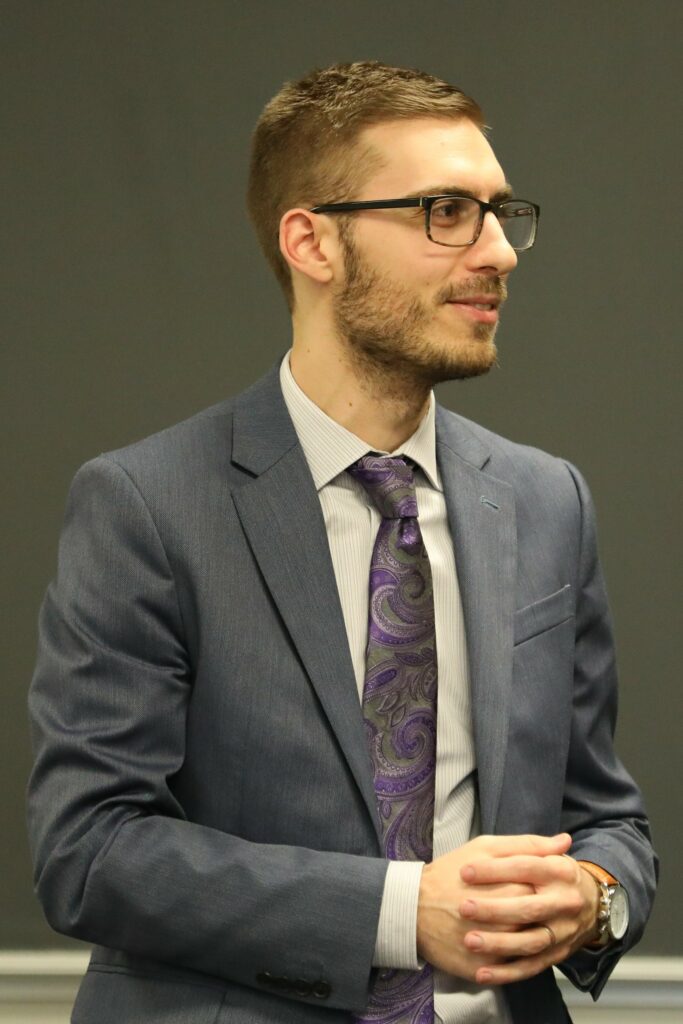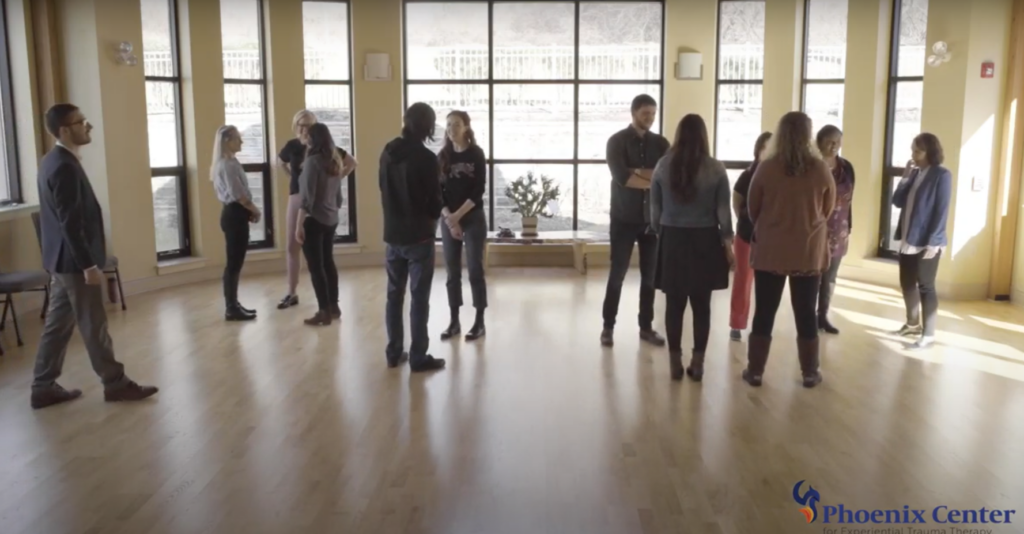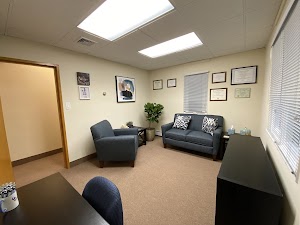
Dr. Scott Giacomucci and other Phoenix Center staff regularly provide training in-services for clinical teams at various programs and treatment centers in the tri-state area and beyond. These CE trainings are uniquely tailored to the needs of your team while primarily focusing on enhancing group facilitation skills, learning experiential therapy techniques, and incorporating trauma-informed and/or trauma-focused approaches into your program. Previous organizational leaders have expressed that these trainings also significantly increase cohesion in their organization/team and help address burnout & vicarious trauma among staff. Learn more about the specific benefits of psychodrama training here.
We primarily offer specialized training in the following areas:
- Group Therapy and Experiential Groups
- Trauma-Informed Care
- Trauma, Grief/Loss, Addiction, and Mental Health
- Sociometry, Psychodrama, and Group Psychotherapy
- Trauma-Informed Leadership
“I can’t say enough positive statements about the training that Dr. Giacomucci has provided our teams- unparalleled. It elevated their skillset, quality of treatment, and confidence as clinicians in providing a modality that facilitates participation in treatment. I also believe it strengthened our cohesion as a team. We are extremely proud of the product (clinical services) we deliver.”
Dr. Ramona Roberts, CCTP-II, CET, CCS,
Sr. Executive Director, Regional Outpatient Services,
Caron Treatment Centers
Do Your Therapists Have Any Group Therapy Training?
Are you an Inpatient, Residential, PHP, or IOP program primarily utilizing group therapy? Did you know that most graduate programs do not include any group therapy training? Graduate counseling students are only require to take one short course in group counseling while social work accreditation does not require any group work course for MSW students. Your staff may be facilitating groups without any training or education in it which is not good practice! Group therapy is distinctly different from individual therapy and requires unique skills, theories, and training. We can help your team develop these competencies. Dr. Scott Giacomucci is a Board-Certified Trainer, Educator, & Practitioner in Sociometry, Psychodrama, & Group Psychotherapy (TEP) and has received awards for his group work practice, scholarship, and teaching from multiple national or international group therapy societies (including ACA’s ASWG; IASWG; NASW; & ASGPP). He has taught group work courses at multiple universities, addiction treatment centers, and outpatient centers.
Do Your Groups Actively & Creatively Engage Clients?
Many clients report that groups are boring and repetitive, especially for folks who have been in treatment multiple times or young adults. Are your staff able to actively engage group members beyond “check-ins” or lecturing to them? Incorporating some simple experiential therapy techniques into your groups can significantly increase the quality of your program and keep clients engaged in their treatment. Some programs we work with even found that their clients ask to stay in treatment longer to attend additional experiential/psychodrama groups. Training your staff in experiential methods will pay for itself in longer client stays and improved satisfaction. Make your program standout from the competition by offering experiential therapy and psychodrama groups. Dr. Scott is a psychodrama trainer and experiential therapy trainer and can provide training hours towards certifications in experiential therapy and psychodrama.
Is Your Program Really “Trauma-Informed”?
Do You Offer Safe & Effective “Trauma-Focused” Services to Treat PTSD?
Every program claims to be “trauma-informed” nowadays. But has your organization really incorporated SAMHSA’s six trauma-informed principles into its services, its supervision/management, its policies, and the layout of the physical facility? We can help teach your clinicians, managers, and non-clinical frontline staff how trauma impacts the body and the mind. We can help your employees recognize the difference between a trauma response and defiance/resistance in a client. PTSD is often overlooked as a diagnosis as it has considerable overlap with other conditions such as depression, anxiety, ADHD, substance use disorders, personality disorders, and other mood disorders. Dr. Scott Giacomucci is recognized as a Fellow of the American Academy of Experts in Traumatic Stress (FAAETS) and can help your team increase their skills in assessing and treating trauma and PTSD. Trauma competencies are particularly important considering that the overwhelming majority of clients in treatment for mental health or addiction have a history of trauma. Many addiction experts are coming to the conclusion that addiction is largely the result of trauma, loss, neglect, abandonment, and adversity. PTSD is one of the most common co-occurring disorders for folks with substance use disorders so all addiction treatment programs should have a trauma treatment component.

Dr. Scott has provided training to thousands of professionals around the world including various programs in the Philadelphia area such as Mirmont Treatment Center, Mainline Health Systems, Caron Treatment Center, Pinelands Recovery Center, Banyan Treatment Center, Maryland Addiction Recovery Center, Women Organized Against Rape, Spilove Psychotherapy, Espenshade Counseling, Manor of Hope, and multiple university graduate programs including Bryn Mawr College, University of Pennsylvania, Philadelphia College of Osteopathic Medicine, West Chester University, Denver University, New Mexico State University, Columbia University, Neumann University, Antioch University, Widener University, Penn State University, as well as international universities. Training topics have included the following and more:
- Introduction to Sociometry, Psychodrama, and Experiential Trauma Therapy
- PTSD, CPTSD, Trauma-Informed Principles, and Post-Traumatic Growth
- The Intersection of Addiction and Trauma
- Experiential Group Treatment: Sociometry and Safety Structures
- An Experiential Trauma Therapy Clinical Map: Neurobiology and Safety
- Using Experiential Work to Transform Burnout, Compassion Fatigue, & Vicarious Trauma
- Working Experientially with Defenses in Addiction & Trauma Work
- Relational Trauma Repair: Psychosocial Metrics & Psychodrama-like Interventions
- Experiential Therapy Supervised Practice
- Psychodrama and Empty Chair Work in Individual Sessions
- Sociatry & Spirituality in Trauma and Addiction Work
- Strengths-based Experiential Work and the Empty Chair
- Role Theory, Doubling, and Attachment Theory
- Experiential Work with Loss, Ambiguous Loss, Traumatic Loss, and Resilience
- Group Work, Group Therapy, Mutual Aid, and the 12-steps
- Other topics available upon request
The Phoenix Center is a pre-approved provider of CE Hours for National Board of Certified Counselors (NBCC), American Psychological Association (APA), and the Pennsylvania boards of Social Work, Marriage & Family Therapy, Professional Counseling, and Psychology. Any in-services trainings by Phoenix Center staff can provide these CEs plus training hours towards certifications in experiential therapy and psychodrama.
Our fee for organizational consultation or clinical training varies based on the nature of the organization, travel distance, number of participants, type of training, and workshop content. Workshops are individualized to meet your organizational needs/preferences and include the provision of CE hours and certificates. See fee schedule below:
Small group workshops (under 35 people)
-$550/hr or $2750/day
Large group workshops (35-75 people)
-$1000/hr or $4800/day
Keynote presentations (and/or groups over 75 people)
-$2000/hr
*Reduced cost offerings are provided to non-profit organizations and international communities on a limited basis. Write to us if cost is the only thing holding you back from working together!
Scott@PhoenixTraumaCenter.com
“The group psychodrama trainings provided by Dr. Scott Giacomucci have been embraced by the clinical department since 2019. The hands-on learning coupled with real-time practice and implementation create a unique and enjoying training atmosphere. Our clinicians and case managers have utilized different exercises in group therapy which have only enhanced the healing process for our patients.”
Casey Castronova, LCSW, LCADC,
CEO, Pinelands Recovery Center

